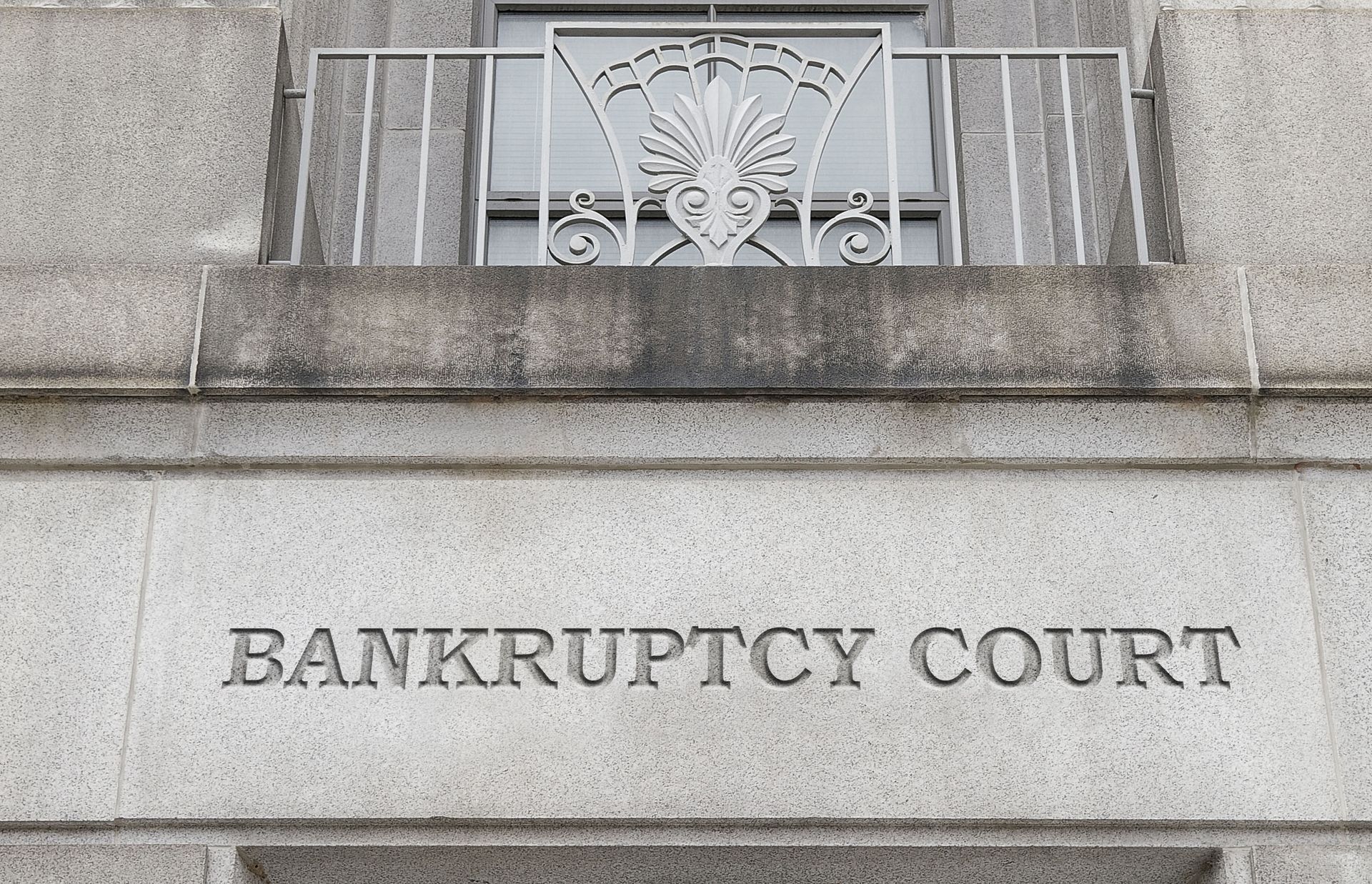Recent Blog Posts








Hours:
Hours:
Bankruptcy Attorney in Appleton, WI and the Surrounding Area
Low-Cost Flat Fees
Same-Day Consultations Available
Attorney Helbing Answers His Phone Personally
Hours:
Bankruptcy Guidance in Appleton and Fox Valley
At Helbing Law Office, LLC, we understand that financial difficulties can be overwhelming. For over 25 years, we've been providing compassionate and effective bankruptcy solutions to residents of Appleton and the Fox Valley area. Our approach is simple: we offer personalized, non-judgmental advice to help you navigate the complex world of bankruptcy law. As a locally owned firm, we're deeply committed to our community.
We pride ourselves on our accessibility - when you call, you'll speak directly with our experienced attorney. Our team ensures clear communication throughout your legal journey. With our background rooted in Wisconsin, including an undergraduate degree from Edgewood College and a law degree from Mitchell Hamline School of Law, we bring a wealth of local knowledge to your case. Call us today to schedule a consultation.
Do not be overwhelmed by your debts. Help is on the way in the form of
personalized representation from Attorney Timothy J. Helbing.
Why pay Milwaukee or Chicago prices when you
live in northeastern Wisconsin?
This is paragraph text. Click it or hit the Manage Text button to change the font, color, size, format, and more. To set up site-wide paragraph and title styles, go to Site Theme.
Dedicated Support for Your Financial Fresh Start
Low-Cost Flat Fees
Same-Day Consultations
Attorney Helbing Answers the Phone Personally
Locally-Owned
Over 25 Years of Experience
Law Degree at Mitchell Hamline School of Law

Learn More About Attorney Helbing
Chapter 7 Bankruptcy
At Helbing Law Office, we guide you through the entire Chapter 7 process, from determining your eligibility to representing you in court. Our experienced team will help you understand which debt would be dischargable and which assets you may be able to keep, ensuring you make informed decisions about your financial future.
Chapter 13 Bankruptcy
We at Helbing Law Office specialize in creating manageable repayment plans that help you retain your assets while addressing your debts. Our experience ensures that your Chapter 13 plan is tailored to your specific financial situation, providing a structured path towards financial stability.
Wisconsin Bankruptcy Alternatives
At Helbing Law Office, we're well-versed in Wisconsin-specific alternatives to bankruptcy. We can help you explore options such as debt consolidation, negotiation with creditors, or debt management plans. Our goal is to find the solution that best fits your unique circumstances, whether that involves bankruptcy or an alternative.
Wisconsin Student Loans
While it's generally difficult to discharge student loans through bankruptcy, there are options available. We can advise you on strategies for managing your student loans, including income-driven repayment plans, loan forgiveness programs, or discharge through bankruptcy.
A Personalized Approach to Bankruptcy Law
At Helbing Law Office, LLC, we understand that financial stress doesn’t just affect your wallet—it impacts your health, your relationships, and your peace of mind. That’s why we’re committed to guiding you through your bankruptcy options with clarity, empathy, and decades of experience. When you need a bankruptcy attorney in Appleton, WI, you deserve someone who will treat you with respect and give your case the personalized attention it deserves.
Over 25 Years of Helping Clients Reclaim Control
For more than two decades, Attorney Timothy J Helbing has helped individuals and families in Appleton and throughout the Fox Valley overcome overwhelming debt. His extensive experience in both Chapter Seven and Chapter 13 bankruptcy gives clients the confidence they need to move forward with a plan that fits their unique financial situation. As a locally owned firm, we believe in offering big-city legal guidance without the high price tag often seen in Milwaukee or Chicago.
Whether you're facing credit card debt, medical bills, or the threat of foreclosure, we offer straightforward solutions tailored to your goals. You won’t have to navigate automated phone systems or large, impersonal firms. At Helbing Law Office, you’ll speak directly with the attorney who’s handling your case from start to finish.
Chapter Seven Bankruptcy: A Clean Slate
Chapter Seven bankruptcy can be a powerful tool for those struggling with unsecured debt. It allows you to discharge qualifying debts and make a fresh start, often within a few months. As your bankruptcy attorney in Appleton, WI, we’ll walk you through the process step by step, from checking eligibility to filing paperwork and attending court hearings.
We take the time to explain which debts are dischargeable, what property you can protect, and how the process may impact your credit in the short term. Our goal is not just to get you through bankruptcy, but to help you build a stable foundation for the future. With Helbing Law Office by your side, you don’t have to face this alone.
Chapter 13 Bankruptcy: A Structured Path Forward
If you’re earning a steady income but struggling to manage your debt, Chapter 13 bankruptcy might be the right fit. This option allows you to create a manageable repayment plan, typically spread over three to five years. During this time, you’ll be able to keep your home, car, and other valuable assets while making monthly payments based on your income and expenses.
As experienced bankruptcy attorneys, we’ll help you structure a plan that reflects your needs and gives you room to breathe. You’ll benefit from our careful planning and responsive communication throughout the process. When you choose Helbing Law Office, you gain more than a filing—you gain an advocate for long-term financial health.
Wisconsin-Based Debt Relief Options
Bankruptcy isn’t the only way to regain control of your finances. In some cases, debt settlement, consolidation, or creditor negotiation may provide a better path forward. At Helbing Law Office, we help you understand every option available under Wisconsin law so you can make a decision that’s right for your situation.
We don’t believe in one-size-fits-all legal advice. As your bankruptcy attorney in Appleton, WI, Attorney Helbing takes the time to assess your financial picture and recommend the most appropriate course of action. If a bankruptcy alternative is viable, we’ll help you pursue it—without judgment and without pressure.
Student Loans and Bankruptcy: Understanding Your Options
While discharging student loan debt through bankruptcy is notoriously difficult, there are still options to manage or reduce your financial burden. We can help you explore income-based repayment plans, public service loan forgiveness, or hardship-based discharge through an adversary proceeding. Even if your student loans cannot be erased, we can often reduce your other debts so you can focus on repayment.
Our in-depth understanding of both bankruptcy law and federal loan programs allows us to guide you through complex decisions. If you're overwhelmed by student debt, talking with a bankruptcy attorney in Appleton, WI can help you regain control of your financial future. At Helbing Law Office, we’ll help you find a solution—even if it doesn’t involve bankruptcy.
Take the First Step Toward Financial Relief
You don’t have to face debt alone. At Helbing Law Office, LLC, we’ve helped countless individuals and families in Appleton and the surrounding area regain their financial footing. Whether you’re considering Chapter Seven, Chapter 13, or simply want to explore your options, our bankruptcy attorney in Appleton, WI is here to provide honest guidance and experienced legal representation.
If you're ready to stop the collection calls, protect your assets, and start fresh, contact us today. Let a compassionate and experienced bankruptcy attorney in Appleton, WI guide you through the process and toward a brighter financial future.
Here's what our satisfied clients are saying...
At Helbing Law Office, LLC, we take pride in providing exceptional bankruptcy services to our clients. We would be grateful if you could share your thoughts about our office with others. Your feedback helps us improve and helps others make informed decisions. Please take a moment to leave a review of Helbing Law Office, LLC and let others know what you think.








